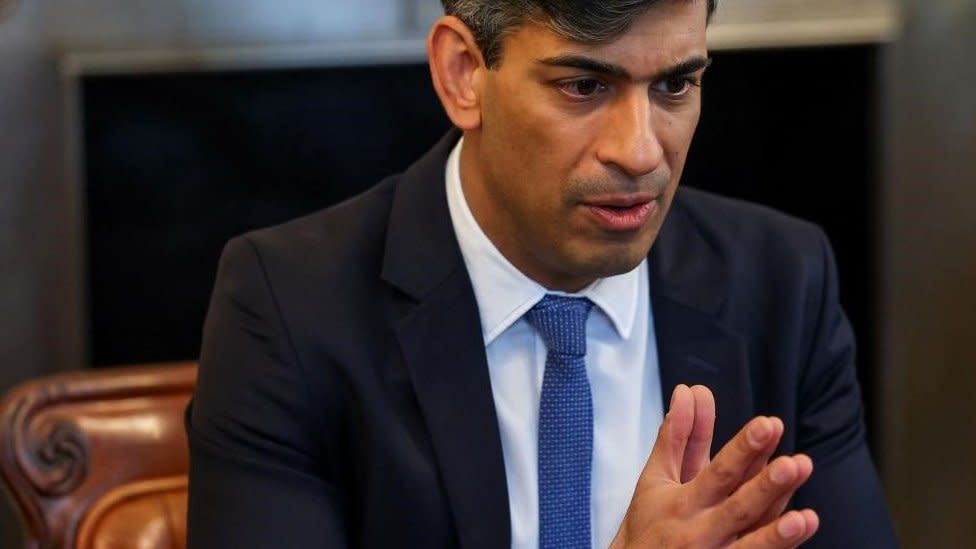Rwanda bill passage draws election dividing line

The midnight oil was ignited, but it didn't need to burn for long.
In fact, ping pong was done as Big Ben bonged 12 times, and the House of Lords had, collectively, decided it had made its point.
Parliament has passed the government's Rwanda bill.
Note this morning how the prime minister is framing this in the widest context.
It is, he claims, "a fundamental change in the global equation on migration."
He is seeking to set this UK argument - as long-winded and controversial as it has been, and continues to be - against a broad generational and geographical backdrop.
The idea that the UK's challenge isn't unique, but shared by similar countries wrestling with the pressures of migration.
What we have had over the last 24 hours is Rishi Sunak publicly assembling the architecture of action: the additional detention spaces, the extra caseworkers, more capacity for the courts to deal with the issue.
But all the noise in Parliament, all the noise in the courts, all the ministerial trips to the Rwandan capital Kigali are a means to an end.
The big question now is: how quickly can the government put some asylum seekers on flights? You can read more about that here.
Question of timing
And even that is only a building block in testing the central proposition of the whole idea: that it will prove to be a deterrent to those contemplating getting in a small boat over the English Channel.
The timeline here is crucial.
Ministers want to get flights going by the summer, and for there then to be frequent flights.
They hope the pictures - migrants being put on planes, planes taking off for east Africa - will send a powerful message.
But they only have until the general election, whenever that comes in the months ahead, to achieve something here, with Labour saying they would scrap the whole project if they win the election.
They argue the Rwanda plan is an "extortionately expensive gimmick" - but will face questions about whether their ideas would be any better, particularly if and when flights do begin.
So, ministers need to either be able to credibly point to it being a deterrent, or argue that it would work if they had longer.
It will be a stark dividing line at the election, with Labour planning for its abolition.
Privately, even the most involved and the most passionate of those in government trying to make the Rwanda plan happen concede it won't be the difference between election victory and defeat.
But they passionately believe a novel approach, a different approach has to be worth a try, because frankly little else has worked.
And here is one certainty: whether the Rwanda policy succeeds or fails, lasts or gets dropped, the biggest questions about global migration are not going away.
This government and their successors, of every party, will wrestle with these issues for decades to come.

